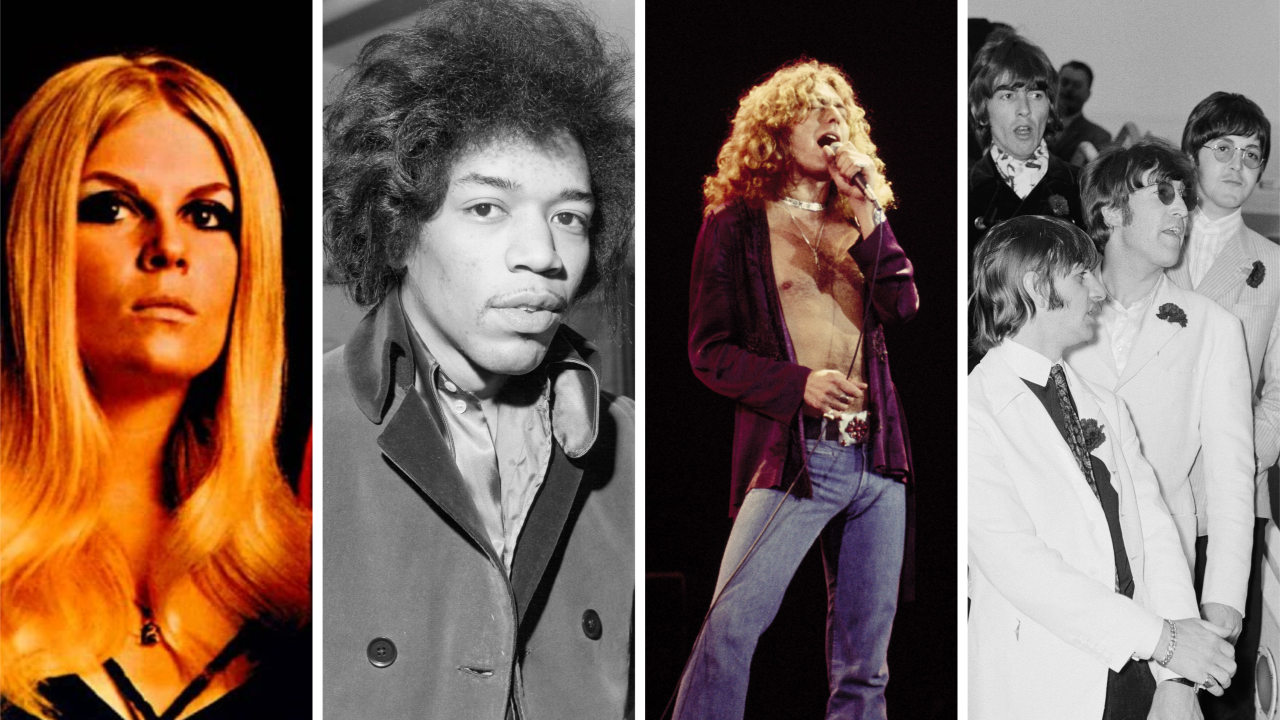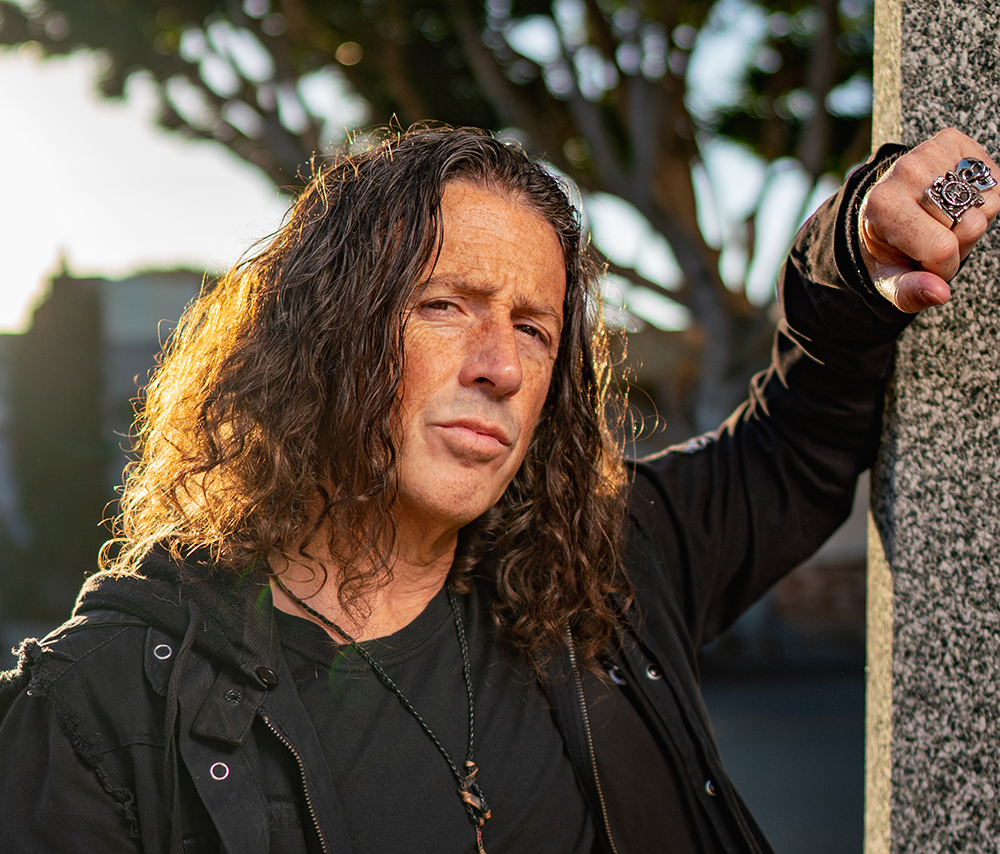10 great heavy metal songs that came before Black Sabbath
Black Sabbath may have been the official ground zero for metal, but these heavy-as-lead bangers all predate that classic first album

Approximately fourteen billion years ago, in mere fractions of a second, the Big Bang occurred and our entire Universe was created. Little is known of what existed prior to that moment.
Somewhat more recently - on Friday, February 13, 1970, to be precise - in a mere seven tracks totalling thirty-eight minutes, Black Sabbath released their self-titled debut album and the universe of heavy metal was created.
Admittedly, debate will always rage as to the true progenitors of heavy metal. In his canonical documentary, Metal: A Headbanger's Journey, Canadian filmmaker Sam Dunn posits that metal actually began with San Francisco's Blue Cheer, back in 1968. Others insist that it all started with Led Zeppelin. Ultimately, however, one need only examine heavy music before and after Black Sabbath to fix the point at which heavy metal was truly born; within that album lies the DNA of practically every metal album in its wake, from the seismic riffs, flamethrowing fretwork and punishing grooves that define the genre to its swaggering counterculture bravado.
Which is not to say that heavy music didn’t exist before Sabbath. Unlike the Big Bang, a great deal is known of that pre-historic era before Messrs. Iommi, Osborne, Butler and Ward unleashed their sonic devastation upon an unsuspecting world. In the years approaching Sabbath’s debut, scores of iconic bands had already unlocked the primal forces of power riffs, high-watt stacks of amplifiers and subversive lyrics aimed at total destruction of the status quo.
Here, then, are ten proto-metal classics that predate Sabbath’s game-changing debut:

Coven - Black Sabbath (1969)
Coven’s debut, Witchcraft Destroys Minds & Reaps Souls, is one of the more outrageous releases of the late-60s, stacked to the rafters with chilly Luciferian devotions, eerie melodic explorations and a full thirteen-minute Satanic Mass to boot. Over the top? A thousand percent, but the album’s opening track deftly encapsulates the druggy paranoia of the psychedelic era, woven into grooves that open innocently enough, but which slowly build to a full-on freakout in its climax. Worth mentioning that not only did this track precede Black Sabbath by a year, but Coven’s bassist was a lad named Oz Osborne. No relation.
Led Zeppelin - Whole Lotta Love (1969)
Both Led Zeppelin I and II were released in 1969, so there’s no shortage of candidates for Zeppelin’s heaviest pre-1970 track. There’s Dazed and Confused, Communication Breakdown and Moby Dick, to name a few, but Whole Lotta Love, with its buzzsaw riffing, space rock breakdown and Robert Plant’s otherworldly howl, showcases Zeppelin at their absolute filthiest. The track sounds as vital today as it did on the day that it was released; in fact, readers of Total Guitar and Guitar World recently voted the song’s iconic riff as the Greatest Guitar Riff of All Time.
Sign up below to get the latest from Metal Hammer, plus exclusive special offers, direct to your inbox!
Deep Purple - Kentucky Woman (1968)
Innovative, dynamic and cerebral, Deep Purple’s sophomore outing, The Book Of Taliesyn, featured core members Ritchie Blackmore, Jon Lord and Ian Paice alongside vocalist Rod Evans and bassist Nick Simper. They’d already flexed their cover song muscles by reimagining the Joe South track, Hush and the Beatles’ Help! on their debut that same year but their version of Neil Diamond’s Kentucky Woman tops them both. A driving, funked-up blowout featuring Simper’s propulsive bass lines, Kentucky Woman performed extremely well in the US and later became a live staple. Nonetheless, it was a curious choice for the album’s second single considering that the original Diamond version had been a top 30 hit less than a year earlier. Imagine Avenged Sevenfold releasing a cover of Lux Aeterna this fall.
Frank Zappa - Willie the Pimp (1969)
Zappa and the Sabbath lads were notoriously chummy back in the day. In fact, in a 2007 interview with Westword, Geezer Butler credited Zappa with conferring credibility upon Sabbath with the American press, explaining, “A lot of critics went, ‘Well, if Zappa likes Black Sabbath, maybe we should give them another listen.’” While he remains a paragon of innovation and experimentalism, Zappa was no slouch as a guitarist either. Willie The Pimp features a guest turn from vocalist Captain Beefheart channelling his inner bluesman while Zappa lays down a barrage of grimy riffs and sharp, spiralling leads. A scuzzy fever dream drenched in distorted guitar lines and dizzying rhythmic shifts.
The Beatles - Helter Skelter (1968)
While chilling in Scotland one day, Paul McCartney read a Melody Maker interview in which Pete Townshend claimed to have just released the loudest and most ridiculous rock and roll album ever. Not one to be outdone by his London frenemy, McCartney set out to write something bigger, louder and wilder. “That was really all I wanted to do – to make a very loud, raunchy rock ‘n’ roll record with The Beatles. And I think it’s a pretty good one.” Indeed. This track torpedoed any notion of the Beatles as cutesy, mop-topped boys interested in holding hands. Helter Skelter is utterly feral — a jagged war cry with scarred vocals, razorwire guitars and a snarling shout out chorus. Though Charles Manson would later immortalise the song for all the wrong reasons, it’s been covered by countless bands over the years, including Motley Crue, Aerosmith, Oasis and U2.
The Who - Anyway, Anyhow, Anywhere (1965)
Tony Iommi was still working in a sheet metal factory when Pete Townshend was mastering power riffs and distortion and Anyway, Anyhow, Anywhere illustrates Townshend’s vast contributions to heavy music. The band’s second single in 1965, Anyway... opens with its jangly trademark riff, then plunges into a seditiously-groovy call-and-response verse. Erupting with Roger Daltrey’s defiance and hostility, the track devolves into a trippy breakdown anchored by Keith Moon’s chaotic drum rolls and the first-ever recording of harmonic feedback, before piling back in for one last run at the chorus. The track was Townshend’s attempt to bottle the kinetic maelstrom of their live show and there’s no doubt that he hit the mark.
Iron Butterfly - In-A-Gadda-Da-Vida (1968)
Just as it’s impossible to imagine heavy music without Black Sabbath, it’s almost as difficult to imagine Black Sabbath without Iron Butterfly’s doomy, seventeen-minute acid rock opus. Today it’s often used as shorthand for the drug-fuelled, overblown excess of 60s psychedelia but In-A-Gadda-Da-Vida is an unqualified doom rock masterpiece that boasts skull-flattening riffs mixed in with its haunting organ. It spent seventeen weeks on the charts, sold over 25 million copies and received the ultimate heavy metal tribute when Slayer covered it in 1987 on the soundtrack to Less Than Zero.
The Jimi Hendrix Experience - Stone Free (1967)
When legendary rock journo Dave Marsh hailed Are You Experienced as “the greatest, most influential debut album ever released,” he may have been pulling his punches. When Hendrix hit the scene in the mid-60s, his jaw-dropping approach to both songwriting and playing inspired an entire generation of his very successful and influential peers to rethink how they approached music. Recording the album proved challenging, with Hendrix often frustrated by the difficulty of recording at the high volumes required for the creation of his tone. After an arduous day recording over 30 takes of Hey Joe, Hendrix went back to his London apartment and wrote Stone Free the next evening. Steeped with sledgehammer riffs and backed by one of the greatest rhythm sections of all time — bassist Noel Redding and drummer Mitch Mitchell — the track captures a young Jimi Hendrix finally coming into his own as a songwriter.
Crow - Evil Woman (1969)
Also known as Evil Woman (Don’t Play Your Games With Me), this track exemplifies the brand of heavy funk growing in popularity toward the tail end of the 60s. Behind a thumping bassline, tight riffs and a dancefloor-packing horn arrangement (allegedly dubbed in over the band’s wishes), this track shot the Minneapolis quintet straight into the US Top 20. It also caught the attention of Black Sabbath, who released a cover of this track as their first-ever single. If that’s not a vote of heaviness, we don’t know what to tell you.
Blue Cheer - Summertime Blues (1968)
On their debut album, Vincebus Eruptum, San Francisco’s Blue Cheer released this bone-crushing cover of Eddie Cochran’s 1958 classic which, for many, heralds the birth of heavy metal. Direct, forceful and utterly unrelenting in its intensity, the crippling heaviness of this track cast contemporaries like the Stones, the Kinks and the Yardbirds a meek and toothless in comparison. The San Francisco power trio convert Cochran’s breezy, feel-good original into a sonic apocalypse of bludgeoning tempos, minor key riffing and scorching fretwork. The only band not named “Black Sabbath” to credibly lay claim to the title of the first heavy metal band of all time.
Hailing from San Diego, California, Joe Daly is an award-winning music journalist with over thirty years experience. Since 2010, Joe has been a regular contributor for Metal Hammer, penning cover features, news stories, album reviews and other content. Joe also writes for Classic Rock, Bass Player, Men’s Health and Outburn magazines. He has served as Music Editor for several online outlets and he has been a contributor for SPIN, the BBC and a frequent guest on several podcasts. When he’s not serenading his neighbours with black metal, Joe enjoys playing hockey, beating on his bass and fawning over his dogs.










